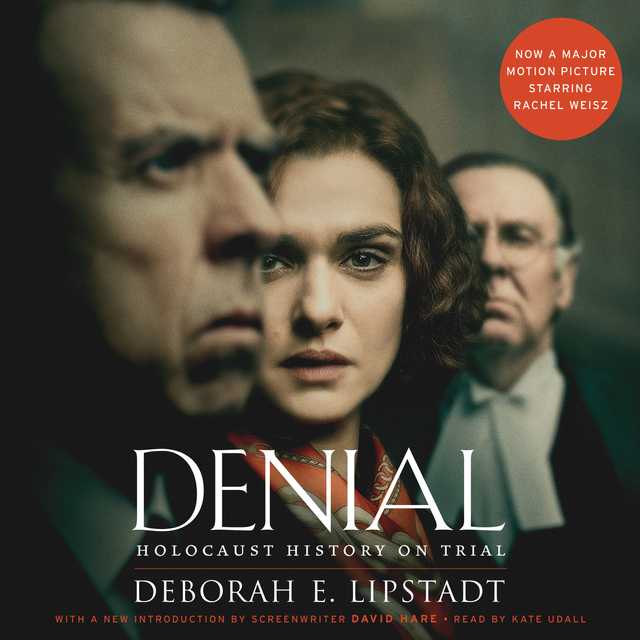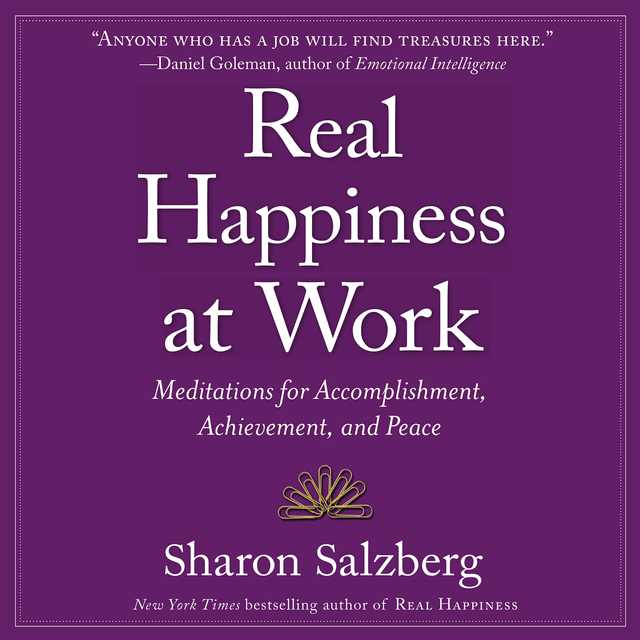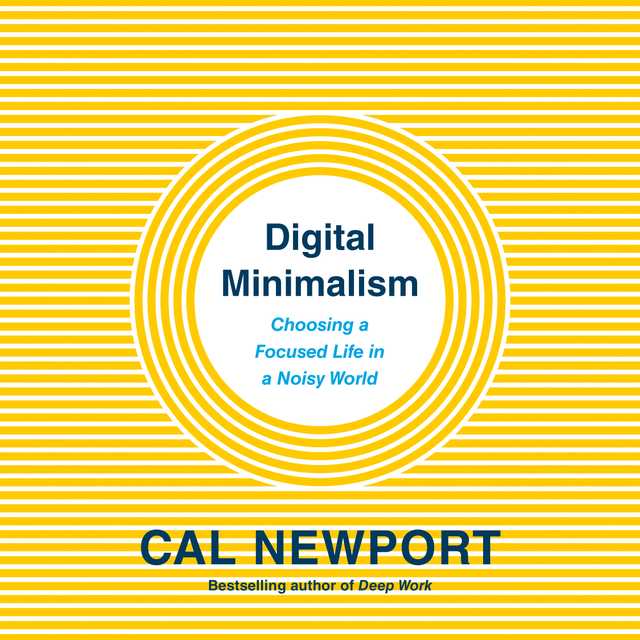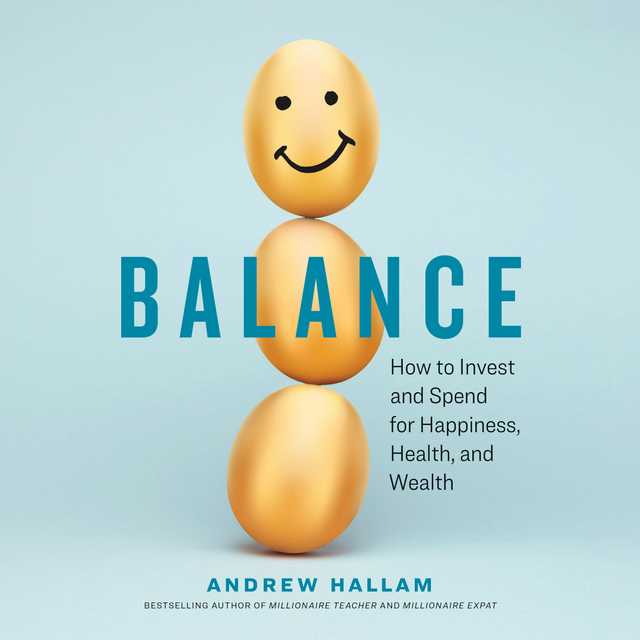Denial [Movie Tie-in] Audiobook Summary
In her acclaimed 1993 book Denying the Holocaust, Deborah Lipstadt called David Irving, a prolific writer of books on World War II, “one of the most dangerous spokespersons for Holocaust denial.” The following year, after Lipstadt’s book was published in the United Kingdom, Irving led a libel suit against Lipstadt and her publisher. She prepared her defense with the help of a first-rate team of solicitors, historians, and experts, and a dramatic trial unfolded.
Denial, previously published as History on Trial, is Lipstadt’s riveting, blow- by-blow account of this singular legal battle, which resulted in a formal denunciation of a Holocaust denier that crippled the movement for years to come. Lipstadt’s victory was proclaimed on the front page of major news- papers around the world, such as The Times (UK), which declared that “history has had its day in court and scored a crushing victory.”
Other Top Audiobooks
Denial [Movie Tie-in] Audiobook Narrator
Kate Udall is the narrator of Denial [Movie Tie-in] audiobook that was written by Deborah E. Lipstadt
Deborah E. Lipstadt is Dorot Professor of Modern Jewish and Holocaust Studies and director of the Institute for Jewish Studies at Emory University. She is the author of Denying the Holocaust: The Growing Assault on Truth and Memory.
About the Author(s) of Denial [Movie Tie-in]
Deborah E. Lipstadt is the author of Denial [Movie Tie-in]
More From the Same
- Author : Deborah E. Lipstadt
- Antisemitism
- Publisher : HarperAudio
- Abraham
- American Gods [TV Tie-In]
- Dead Ringer
- House of Sand and Fog
- Prey
Denial [Movie Tie-in] Full Details
| Narrator | Kate Udall |
| Length | 13 hours 14 minutes |
| Author | Deborah E. Lipstadt |
| Category | |
| Publisher | HarperAudio |
| Release date | September 06, 2016 |
| ISBN | 9780062661982 |
Additional info
The publisher of the Denial [Movie Tie-in] is HarperAudio. The imprint is HarperAudio. It is supplied by HarperAudio. The ISBN-13 is 9780062661982.
Global Availability
This book is only available in the United States.
Goodreads Reviews
Elliot
March 16, 2013
David Irving, Holocaust denier, is a walking psychology case study in narcissism, chronic lying, cognitive dissonance, and willful ignorance. In British court, he sued historian Deborah Lipstadt for describing him as a Holocaust denier in her book. This is a page-turning account of the suit, the trial, and the aftermath; it is also a recommendable description and appreciation of the craft of Historians. The most annoying thing about this book is Lipstadt’s incessant fretting, anxious worrying, and presumptuous interference in the masterfully conducted defense constructed by her British lawyers. Historians Richard Evans and Robert Jan Van Pelt delivered hundreds of pages of meticulous research refuting Irving’s shoddy scholarship and Hitlerphilia. Irving, who some thought was merely a historian with an alternative take on WWII, turns out to be a full-blown racist and genuine anti-Semite. The trial showed definitely that he cooked claims, falsified sources, distorted evidence. Good show!
Tracy
July 26, 2018
I was stymied by the task of writing this review for a long time. I didn't know where to start because this is a subject so emotionally charged that it's difficult to discuss. Then I realized that this was one of the central issues of the book and the trial. How do you approach Holocaust denial? Do you even dignify that position by bothering to argue it?This is the question Deborah Lipstadt has to answer when historian David Irving brought a lawsuit against her for calling him a Holocaust denier, and a liar. He brought the suit in London because British law required Lipstadt to prove that her accusations were true rather than placing the burden of proof on Irving himself as plaintiff as American law would have done. Lipstadt could have made it all go away by settling -- and there was pressure on her to do so, even from parts of the Jewish community -- but she chose to fight the suit because not to would have been to imply that it was okay to deny the murder of millions of Jews (and others, though that doesn't actually enter into the narrative.)The account of the trial shows clearly how frustrated Lipstadt was with the process, with the fact that her legal team would not allow her to testify, nor would they allow Holocaust survivors to take the stand. She didn't understand either position and butted heads with her lawyers on more than one occasion. She took exception to her barrister treating a visit to Auschwitz as a forensic visit rather than a memorial one. Her responses were utterly understandable and based on emotion, and that is why her team made the choices they did. The law doesn't deal in emotional arguments, it deals in facts. The weight of tears cannot be measured against the weight of evidence. Lipstadt and her team didn't have to prove that millions of people died and that Hitler was ultimately responsible, they just had to prove that in misrepresenting facts and changing words from primary documents, Irving lied. They didn't have to prove that anti-Semitism and racism are wrong, they only had to prove that Irving was a racist and anti-Semite. And only a painstaking examination of fact could ever prove those things.The book is a powerful one, particularly in our time when racism, anti-Semitism, and all manner of ugly, troll-like behavior is being enabled at the highest levels of government. Irving's behavior feels familiar to this contemporary American, a man who cannot admit either mistakes, or wrong-doing, and who is not only a Holocaust denier but who, on the night when the verdict was given in Lipstadt's favor, went on British television to talk about how, in the end, the decision was actually quite favorable to him. It wasn't, it was devastating to him, but he was either incapable of understanding that or he simply refused to admit it. When asked if he would then stop denying the Holocaust, Irving replied, "Good lord, no."I should add that before I wrote this review I also watched the film, and found it excellent. I think they're complimentary, and one enhances the other. Either way, if you're at all interested in the case, one which I did find I remembered from the late 1990s, the book and to a lesser extent the film, is well worth your time.
Kimba
June 25, 2017
In 1993, Deborah E. Lipstadt, a full professor at Emory University, published "Denying the Holocaust: The Growing Assault on Truth and Memory. The following year, she found herself subject to a libel suit by David Irving, a British amateur "historian", who had published numerous books on Hitler and World War II. Irving accused her of defamation of character because she had labeled him a Holocaust denier whose allegations were based on his ideology of anti-Semitism. This book is her account of the libel trial, which in 2000 ended in an unambiguous and resounding victory for Lipstadt: Irving's version of events surrounding the Holocaust and the bombing of Dresden did not constitute differences of historical interpretation, but were lies based on fabricated and/or manipulated evidence for ideological purposes.Lipstadt, who on the advice of her lawyers remained silent throughout the trial, utilizes this book to voice the fears and concerns that plagued her throughout the trial. Thus, the book is both a memoir and historical account of the trial. Yet in looking at numerous reviews on Goodreads of the book, I have found myself dumbfounded by some of the criticisms launched against the author. Some reviewers have criticized her for "whining" about her dilemma and for her honest account of how she second-guessed her team of lawyers at the time of the trial, for example questioning whether it was a wise decision for her not to testify in her own defense. Yet, I cannot imagine any historian who found themselves in a similar position not harboring some of these same feelings. After all, it was her body of historical work that was being called into question and thus, a defeat in court could ruin her professionally and financially. Not to mention, the libel case had been brought in Britain and not in the United States; consequently Lipstadt found herself dealing with a legal system that she did not fully comprehend. For example, unlike in the United States, the defendant -- not the plaintiff -- shoulders the burden of proof. Thus if she failed to launch a vigorous defense, she would have lost the suit! In addition to these legal challenges, the context in which the trial took place also raised the stakes. The 1990s witnessed a rise in xenophobia, anti-Semitism, and Holocaust denial in the United States, Britain, Germany and elsewhere. For example, the year prior to the publication of her 1993 book, a group of right-wing extremists had set fire to a memorial at Sachsenhausen, a former Nazi concentration camp located outside of Berlin. Additionally, Irving enjoyed a good reputation among some historians; this reputation allowed him to give a certain respectability to Holocaust denial. Against this backdrop, Lipstadt's fears that her case might not end in resounding victory were not without grounds. She also understood that much more was at stake than her career -- had Irving won his libel case the repercussion for freedom of scholarship and for Holocaust history would have been devastating.Even more disturbing than criticisms of her "whining" about her legal representation were those who criticized Lipstadt for failing to reference in any depth other groups targeted and killed by the Nazis. The fact is this book does not pretend to be a comprehensive history of the Holocaust or of the victims of Nazism. It is the history of a libel trial -- one in which the author came under personal and professional attack by a Holocaust denier whose motive for denying the Holocaust was anti-Semitism. Consequently, her defense as presented in the book focuses on the systematic murder of Jews by the Nazi regime and the motives of her accuser. The sad reality is that the vast majority of Holocaust deniers do so because they are anti-Semites. Thus, they do not for example call into question the Nazis' murder of communist resistance fighters, the disabled, the mentally ill, or gypsies. Instead, they call into question the gassing of Jews in extermination camps. That so many readers (not all) failed to grasp why the book focused on Jewish victims is disturbing, as one does not know whether to attribute it to lack of critical reading skills, ignorance of the historical context, or a latent form of anti-Semitism.As Lipstadt concludes:"Since antisemitism and, for that matter, all forms of prejudice are impervious to reason, they cannot be disproved. Therefore in every generation they must be fought."
Jed
May 24, 2013
I’d say it’s the lawyer in me, but my artist/art history-professor Dad couldn’t put down Deborah Lipstadt’s book “History on Trial: My Day in Court with a Holocaust Denier” either. Lipstadt, a renowned Jewish studies professor at Emery University was sued for libel by British author and holocaust denier David Irving, who alleged that Lipstadt calling him a denier in one of her books was untrue and defamatory.The British legal system is very different than ours when it comes to defamation. Unlike the United States, where the burden of proof is on the plaintiff to demonstrate that words were libelous, in Britain, the burden is on the defendant to prove that his or her words were true.This book is one part legal thriller, one part history, and one part autobiographical. It describes how Lipstadt dealt with the pressures to consider a settlement, the need to find money for a defense fund, the difficulty of a historian of her stature being unable to speak to these issues herself and having to let herself be defended through counsel and witnesses, and the painfulness but importance of being part of a trial to prove that the holocaust occurred.Some other reviews on Goodreads accuse Lipstadt of being biased, a complaint I find absurd. Of course she is biased-this is HER story. It's autobiographical, and like all autobiographies, it does not, and cannot, pretend to be objective or attempt to tell all sides of the story. This is Lipstadt's perspective about what happened to her.The book manages to be suspenseful, even for those who know the verdict. I highly recommend it.
Steve
December 06, 2016
Having seen the recent movie (Denial) I thought the book might be worth the read. The movie was good, but the full-length treatment that a book provides is always certain to be more satisfying. The titles of each are suitable for attracting the interest of viewers and readers, but overlook, I think, what is also on trial here: historians, historiography and freedom of speech.David Irving is a prolific writer of histories of Hitler and World War II, well-known for taking iconoclastic and revisionist views on Hitler's culpability for the massacre of the Jews in the "Final Solution" atrocities carried out by Germans. He also wrote a book on the bombing of Dresden by the allies that criticizes this as needless to the war effort and as a putative war crime because of the magnitude of casualties. Deborah Lipstadt is a professor of Modern Jewish History and Holocaust Studies at Emory University. She had been following the activities of Holocaust deniers and in her book "Denying the Holocaust: The Growing Assault on Truth and Memory" wrote that Irving deliberately falsified and misconstrued facts and data about the Holocaust to the point of claiming that whatever killings that occurred were not known to or sanctioned by Hitler and that the gas chambers of Auschwitz did not exist. She was concerned that, rather than being considered a crank, Irving had garnered considerable favorable attention in literary reviews and among some recognized historians.Irving sued Lipstadt and Penguin, her UK publisher, for defamation. Defamation suits in Britain, unlike in America, place the burden of proof on the person making the allegedly defamatory statement(s); in other words, the defendant must prove the truth of her words. (Under US law the plaintiff must prove that the words were untrue and in the case involving public figures that the utterance was recklessly made.) The defendants would be liable for punitive awards, court costs, apology and retraction and, importantly, ceasing any further publication of the offending words. Irving had brought such suits, or threats of suits, in the past and this had caused publishers to settle for fear of losing. In this case, Lipstadt and Penguin determined to contest the suit and employed a first-rate team of legal minds and historians to prove that Irving had intentionally distorted and manipulated facts in his histories. Moreover, that his motivation for so doing was his virulent antisemitism as demonstrated by his public utterances and close ties with extremist groups around the world. Through exhaustive review of sources and examination of Irving's writing and speeches, the defendants were able to prove conclusively that Irving went far beyond the pale of plausible interpretation of facts and willfully distorted evidence that did not support his preconceived conclusions. They showed also that Irving was a rabid and extreme antisemite who had made the most shocking and appalling statements about Jews and Holocaust survivors. Irving agreed with the defense to have the case heard before a judge and not a jury and had decided to represent himself. In his testimony and cross-examination of defense experts he was astoundingly inept, often contradicting himself from one day to the next. (Among the defense experts were Richard J. Evans, perhaps the world's most highly respected historian on 19th and 20th Germany, and Robert Jan Van Pelt whose research and knowledge of Auschwitz is unparalleled.)Lipstadt recounts the trial with the drama it deserves. It concludes with a smashing victory by the defense. Irving was completely discredited and his reputation put into shreds. He foolishly appealed the judge's 375-page decision only to see his standing as a scholar further diminished. This case garnered international attention and, given the risks to his reputation, it is puzzling why Irving wouldn't have found it wiser to ignore Lipstadt's criticisms. Such is the price to be paid for a large ego and delusions driven by self-regard.Here's why I think the movie and book are misnamed. Most people who have heard of the Holocaust "denials" understand it to be the work of crackpots and extremists. While we should worry about such fanatics as they tend toward violence, there is little chance that their views will ever garner credulity. But, Irving is different because his work had been fairly well-reviewed and moderately well-accepted by the academic community. Irving was perceived to be an iconoclast and revisionist whose research was thorough if his interpretations and conclusions were off base. This reception of Irving was, however, entirely unjustified and, disturbingly, no one looked closely at his treatment of his source material. When they finally did -- impelled by the court action he brought -- his falsifications, distortions and manipulations were patently clear. Why hadn't anyone done this before? One thinks of how outlandish it would be if scientists failed to check other scientists' data when evaluating their hypotheses and theories. Does not the academic world of historians bear the same obligation? Now, certainly, there is a place for revisionist interpretations in the study of history; we should actually be thankful for it. It is also appropriate to give wide latitude for divergent analysis and interpretation of the meaning of historical events, but this should not extend giving a pass to overt falsehoods, bias and purposeful manipulation of objective truth. The examination of Irving's use of his sources, when it finally occurred, revealed the most egregious dishonesty that was plain to see by anyone who bothered to look. In the aftermath of the trial, some historians criticized the dismantling of Irving's research by stating that any historian should fear such close scrutiny as the flaws in their work might certainly be detected; that's an astonishing statement that undermines our faith in scholarly integrity.Finally, there's the issue of freedom of speech. Some commentators said that the efforts to discredit Irving served to inhibit the freedom of speech that's the foundation of academic freedom. Such view is entirely wrong headed. It was Irving who, by his legal action, was inhibiting (Lipstadt's) free speech. Certainly, the prospect of being sued for one's speech puts a chill on it. Lipstadt at the outset thought it likely that Penguin would cave in; it was logically in the firm's self-interest to do so. Moreover, academic freedom does not extend to freedom to lie without fear of challenge; indeed it is the dialectical nature of scholarly discourse that does most to advance truth. Irving should not have received a "pass" from his peers and thankfully someone finally (and courageously) called him on this.
K
July 26, 2015
Deborah Lipstadt is my new go-to for Tisha be-Av reading. Here, she gives a detailed account of the lawsuit to which she was subjected when Holocaust denier David Irving sued her for libel. Lipstadt won the case, and Irving was repeatedly discredited as a pseudo-historian drawing the target around the arrow in pursuit of his antisemitic agenda, which was unequivocally demonstrated throughout the trial.The level of detail strengthened Lipstadt's case against Irving but also made this a bit of a challenging read, especially on a fast day. I also think I might have been slightly better off with one of Lipstadt's other books as a Tisha be-Av read. This one looked at the Holocaust through the lens of discrediting Irving and defending historical truths/intellectual honesty as opposed to The Eichmann Trial which was more emotionally evocative as a Tisha be-Av read. That being said, this was not a bad choice for Tisha be-Av. Lipstadt's writing is both intelligent and accessible, and I always come away from her books with a sense of reading time well spent.
Gremrien
November 06, 2021
One of the most important and interesting books I have read recently.I watched the movie not so long ago and liked it, but the book is even better — more informative, more detailed, more fascinating, more thought-provoking, more realistic.It’s a very thorough (mostly literally word by word) reconstruction of the famous trial held in 1996 when a well-known Holocaust denier, Nazi-whitewasher “historian” David Irving, tried to sue Deborah E. Lipstadt, a very respected and diligent historian. Formally, he got in litigation with her because he wanted to “protect his professional reputation” from all the derisive and contemptuous remarks made by Deborah Lipstadt in her books and articles about him and similar Holocaust deniers. However, in order to prove that her remarks about him were nothing but truth (and that David Irving was indeed a liar and a neo-Nazi), Deborah Lipstadt was forced to discuss a lot of very particular historical facts and evidence about the Holocaust in court. The biggest problem with this trial was very strange specifics of the British law that obliged her to prove all this (contrary to “the presumption of innocence”) and do it very, very elaborately and carefully (trying simultaneously be as scientifically correct as possible and yet also as accessible for laypeople as possible, because they were judged by non-historians, and it was crucial to convince the judge in the first place, and then the public as well). If she hadn’t been successful in all this or if she just refused to defend herself (as she wanted to do from the very beginning because all this trial looked bullshit for her), David Irving would have been declared a winner, and this would be a huge blow to the memory of the Holocaust for many years ahead.Therefore, Deborah Lipstadt understood what an enormous responsibility she had and made every possible effort to win.She won!But it was still a very hard battle, and its story is a remarkable case, full of tense suspense and outrage.(You might assume that the Holocaust is so well-documented and widely recognized that such trials should be a joke. However, there are still thousands of aspects that can be interpreted differently if someone really, really wants to interpret them differently, and sometimes historians have to literally fight for the correct interpretation of all the evidence. For example, one of the key issues discussed during the trial was the problem of the very existence of gas chambers in Auschwitz and their true purpose/usage. Do you think it’s easy? Nope, read this book to learn how Holocaust deniers can distort very “obvious” for everybody else facts.)“I was particularly upset when a prominent Jewish lawyer in London declared, “Settle. You might have to pass on getting Irving to admit there are gas chambers, but that would be worth avoiding a trial.” Unable to fathom signing a statement that “passed” on the gas chambers, I was about to ask what he thought should be my bottom line. Four million Jews murdered? Three million? One set of gas chambers? Two? Before I could formulate the words, Anthony interceded: “We will not negotiate with an antisemite on historical truth.” I said nothing but felt exceptionally well represented. I thought back to the Eliot book. Antisemites, irrespective of their standing in the broader world, were scoundrels and with scoundrels one does not compromise.”Thank god, Deborah Lipstadt is also a very good writer, so she wrote about all this in this book.It is not always easy to read it (especially when they discuss various specifics of the law or dive into too many details discussed during the trial), but it’s still fascinating reading. I learned tons of very interesting information — both about the Holocaust and about the practice of its denial.The “star” of the show here was David Irving. It’s a very interesting and powerful personality, which made the case especially difficult. (Think about Donald Trump. Yeah, with all his ridiculousness and obvious lies, wrongdoings, and corruption, he still raped the minds of Americans and the world overall and made everybody miserable for many years, and he still can come back into power — and I cannot even imagine what it would be like. That’s approximately what David Irving is in his area. I really found him very, very resembling Trump in all aspects.)“Irving pulled himself up to his full height, threw back his shoulders, and, appropriating an almost military bearing, emphatically declared, “I am banned from visiting Auschwitz or the archives. I am the only historian in the world who is not allowed to set foot in the Auschwitz archives.” Judging by the tone of his voice, he seemed to consider this ban a badge of honor. Rampton reminded Irving that the Auschwitz ban was not issued until eight years after he testified in Toronto. Why, in those eight years, did he never bother to visit the archives? Irving, chuckling, said he probably would have been banned earlier if he had tried to visit: “It is like the big casinos in Las Vegas. They do not want the big winners to come.” I heard someone in the gallery gasp.”Well, of course, the real stars here were Deborah Lipstadt herself and her wonderful team of lawyers and supporters. I was amazed by the scientific and overall integrity of Deborah Lipstadt’s personality, her efficiency and diligence in every word she says. I liked how she defended herself during the trial and how she described all this in her book later. In the movie, they made her character much younger and beautiful, and I liked the actress, but now I think that this was wrong, because Deborah Lipstadt is perfect “as is.” Even more striking, because you do not expect much from such a plain-looking middle-aged woman, and yet she is incredibly strong, rational, and intelligent. A true hero, inspiring and admirable. I will probably also try her seminal book “Denying the Holocaust” (1993), which was the reason for this trial in the first place (if it will not be too heavy for my infantile mind).And, of course, all her fabulous lawers and other assistants who performed all the necessary procedural formalities and presented/defended the case in person. I was amazed by all the details about the preparation and conduct of such complex trial cases, and all this could easily become a separate book.Very much recommended!
Deborah
August 15, 2019
This was a fascinating account of a legal battle and trial that should never have happened:In 1993, the American author and career academic Deborah Lipstadt wrote a book called 'Denying the Holocaust' about the trend in, well, denying that the Holocaust happened. Her primary research does relate to the Holocaust but not to deniers, that was a specific project and grant given to her by a specific American university. In that book she mentioned in passing a WWII academic and author by the name of David Irving who then decided to sue her. This was pretty odd, considering that he had never been remiss in associating with Nationalistic/neo-Nazi other racist organisations and also that he is quite straightforward in stating many of his beliefs, but he did. The way he did it was also interesting; he sued her in the UK, (she is American) which has very different legislature than the USA. He chose to represent himself, which was ill advised. And, eventually he lost the case and his right to appeal.This is basically a court drama, where the majority of the action takes place in court and I think it is very well done. This is a UK court though; no over dramatised scenes like one has come to expect from USA court scenes. I personally found it fascinating.Since Ms Lipstadt was not allowed by her legal team to take the stand, this book is, I think, her way of letting her thoughts and feelings about the trial and it's circumstances out, she was really given no outlet for personal contribution to the events at hand.Would recommend to people who enjoy British style courtroom drama and have interest in the WWII Holocaust, because, inevitably, details of the Holocaust become significant players in the book.
John
February 16, 2019
A thoroughly detailed and well-written account of Deborah Lipstadt's court battle regarding her Denying The Holocaust book that came out in the early 1990s. Also a good look at the British legal system and its workings. It would be helpful for readers to have read the first book before attempting this one. A recent price drop for Nook and Kindle brought this book to my attention, as I was not aware she had written an account of the trial.
Frequently asked questions
Listening to audiobooks not only easy, it is also very convenient. You can listen to audiobooks on almost every device. From your laptop to your smart phone or even a smart speaker like Apple HomePod or even Alexa. Here’s how you can get started listening to audiobooks.
- 1. Download your favorite audiobook app such as Speechify.
- 2. Sign up for an account.
- 3. Browse the library for the best audiobooks and select the first one for free
- 4. Download the audiobook file to your device
- 5. Open the Speechify audiobook app and select the audiobook you want to listen to.
- 6. Adjust the playback speed and other settings to your preference.
- 7. Press play and enjoy!
While you can listen to the bestsellers on almost any device, and preferences may vary, generally smart phones are offer the most convenience factor. You could be working out, grocery shopping, or even watching your dog in the dog park on a Saturday morning.
However, most audiobook apps work across multiple devices so you can pick up that riveting new Stephen King book you started at the dog park, back on your laptop when you get back home.
Speechify is one of the best apps for audiobooks. The pricing structure is the most competitive in the market and the app is easy to use. It features the best sellers and award winning authors. Listen to your favorite books or discover new ones and listen to real voice actors read to you. Getting started is easy, the first book is free.
Research showcasing the brain health benefits of reading on a regular basis is wide-ranging and undeniable. However, research comparing the benefits of reading vs listening is much more sparse. According to professor of psychology and author Dr. Kristen Willeumier, though, there is good reason to believe that the reading experience provided by audiobooks offers many of the same brain benefits as reading a physical book.
Audiobooks are recordings of books that are read aloud by a professional voice actor. The recordings are typically available for purchase and download in digital formats such as MP3, WMA, or AAC. They can also be streamed from online services like Speechify, Audible, AppleBooks, or Spotify.
You simply download the app onto your smart phone, create your account, and in Speechify, you can choose your first book, from our vast library of best-sellers and classics, to read for free.
Audiobooks, like real books can add up over time. Here’s where you can listen to audiobooks for free. Speechify let’s you read your first best seller for free. Apart from that, we have a vast selection of free audiobooks that you can enjoy. Get the same rich experience no matter if the book was free or not.
It depends. Yes, there are free audiobooks and paid audiobooks. Speechify offers a blend of both!
It varies. The easiest way depends on a few things. The app and service you use, which device, and platform. Speechify is the easiest way to listen to audiobooks. Downloading the app is quick. It is not a large app and does not eat up space on your iPhone or Android device.
Listening to audiobooks on your smart phone, with Speechify, is the easiest way to listen to audiobooks.






























